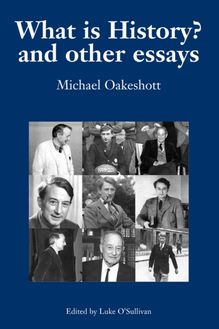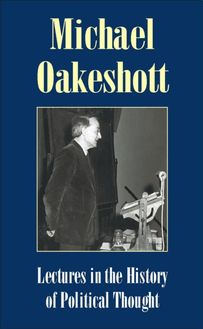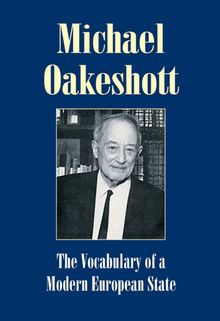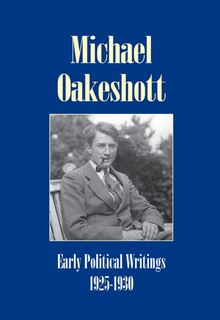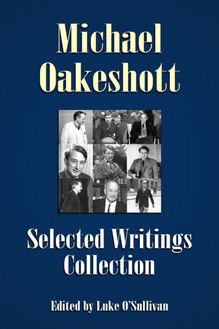Concept of a Philosophical Jurisprudence , livre ebook
253
pages
English
Ebooks
2011
Vous pourrez modifier la taille du texte de cet ouvrage
Obtenez un accès à la bibliothèque pour le consulter en ligne En savoir plus
Découvre YouScribe en t'inscrivant gratuitement
Découvre YouScribe en t'inscrivant gratuitement
253
pages
English
Ebooks
2011
Vous pourrez modifier la taille du texte de cet ouvrage
Obtenez un accès à la bibliothèque pour le consulter en ligne En savoir plus
Publié par
Date de parution
26 octobre 2011
Nombre de lectures
1
EAN13
9781845403072
Langue
English
Publié par
Date de parution
26 octobre 2011
Nombre de lectures
1
EAN13
9781845403072
Langue
English
Title Page
THE CONCEPT OF A PHILOSOPHICAL JURISPRUDENCE:
Essays and Reviews 1926–51
Michael Oakeshott
Edited by Luke O’Sullivan
Publisher Information
This collection copyright © Imprint Academic, 2007
The moral rights of the author have been asserted
No part of any contribution may be reproduced in any form without permission, except for the quotation of brief passages in criticism and discussion.
Originally published in the UK by Imprint Academic
PO Box 200, Exeter EX5 5YX, UK
Originally published in the USA by Imprint Academic
Philosophy Documentation Center
PO Box 7147, Charlottesville, VA 22906-7147, USA
Digital version converted and published in 2011 by
Andrews UK Limited
www.andrewsuk.com
Preface
Preparing the third and fourth volumes in the series of Oakeshott’s Selected Writings for publication posed copyright problems not raised by the first two volumes, which consisted entirely of material from the Oakeshott archive at the London School of Economics. Volumes one and two therefore only required permission from the British Library of Political and Economic Science. Obtaining permission to reproduce the material in volumes three and four, however, involved negotiating with around twenty different parties.
In some cases—where, for example, a journal or magazine had changed hands, or was now defunct, or a book had long been out of print—this proved problematic, as it was not immediately obvious where the copyright lay. The editor is obliged therefore to Gabrielle White, Permissions Assistant at Random House Archive and Library, for investigating the status of the material in the Cambridge Journal .
In the majority of cases, however, a copyright holder was found, and given the total absence of a budget for obtaining the rights to reprint the material included in this volume and its companion, it is gratifying to be able to record that in every case the owners of the rights were prepared either to accept a significantly reduced fee or in some cases even waive their fees altogether.
So far as the material in this volume is concerned, I am very pleased to be able to thank the following individuals and institutions for their willingness to accept less than their regular fee and for consenting to republication: Sophie Buchanan on behalf of The Spectator ; Toby Lichtig on behalf of the Times Literary Supplement ; Linda Nicol on behalf of Cambridge University Press, for permission to use material from Philosophy ; Julia Pieri on behalf of Express Group Newspapers, for permission to use material from the Evening Standard ; and Gemma Puntis on behalf of Oxford University Press, for permission to use material from the Journal of Theological Studies , Mind , and the English Historical Review .
For their generosity in agreeing to waive their fees altogether I am particularly indebted to: Helen Burton at the department of Special Collections and Archives, Keele University Library, for permission to use material originally published by the Le Play House Press; Professor Rudolf Hanka, Chairman of the Cambridge Review Committee, for permission to use items from the Cambridge Review ; Dr Robin Leavis on behalf of the estate of F.R. Leavis, for permission to use material from Scrutiny ; and Anna Towlson of the London School of Economics, for permission to use material originally published in Politica .
Once permission to use the copyrighted material had been obtained, of course, it was necessary to raise the funds to pay for the rights. I am grateful to the British Academy for the award of a Small Research Grant which was sufficient to cover the costs involved in purchasing the reproduction rights for both volumes. This assistance was all the more welcome as the editor was without an academic affiliation for a significant portion of the period during which this volume and its companion were in preparation. Thanks are also due to Professors Robert Grant and Terry Nardin, who lent their support to the grant application.
Imprint Academic, publishers of the Selected Writings , have continued to play a vital role in the success of the series; their ongoing support is a major contribution to Oakeshott studies.
Finally, I would like to thank my family for their continued support as I suffered the vagaries of an academic career. Without their help this volume would never have been completed. My wife Olga also deserves my thanks for her assistance with the proofs, which saved me from some heinous errors. All those remaining are of course my own.
London and Singapore, 2007
Introduction
This volume collects all of Oakeshott’s essays and reviews published between 1926 and 1951 and not previously republished elsewhere. [1] Together with its companion for the years 1952 to 1988, it will make the vast majority of these pieces easily accessible for the first time. The laborious experience of consulting them in their scattered state provided the initial impetus for collecting them into book form, but more than convenience is involved; these writings supply valuable continuity between Oakeshott’s relatively small number of published books.
There were only four major works; Experience and Its Modes (1933), an early philosophical treatise; Rationalism in Politics (1961), a collection of largely previously published essays, mainly on political theory; On Human Conduct (1975), a definitive restatement of themes in the previous two works; and On History (1983), another late work, mainly devoted to the nature of historical understanding. But as Oakeshott himself put it, ‘the mind … is always in motion’, and his early, middle, and late books were all written in very different styles. [2]
Consequently, the relationships between them have been disputed. But as Auspitz has noted, ‘[Oakeshott’s] changes did not come all at once. They began to appear piecemeal in his essays and reviews.’ [3] From the first, he was regularly reviewing books on subjects reflecting his own interests: theology, philosophy (including metaphysics and ethics), history and historiography, and political theory. He also reviewed a variety of literary and topical works. Collectively, they provide valuable contextual material to complement his books, which were sparing in their references and tended to address arguments rather than persons.
Furthermore, taken together, the reviews are a distinctive record of the development of the humanities and social sciences in England over a good portion of the twentieth century; they tell us about the changing times through which Oakeshott lived, as well as about his own intellectual development. And quite apart from such academic considerations, many are exemplary specimens of the reviewer’s craft that remain entertaining to read even if many of the books they dissect have been forgotten.
Some of the longer reviews became essays in their own right, like those in the short-lived Cambridge Journal that Oakeshott established on his return to Cambridge after the end of World War Two. Others were not reviews at all, but a contribution to a debate, such as the little-read piece on ‘History and the Social Sciences’ from 1936, or an effort to develop his own thinking, like ‘The Concept of a Philosophical Jurisprudence’ from 1938. This latter essay is the longest in the volume; it was both a summing-up of the state of jurisprudence and a statement on the nature of philosophy, and as such it gives the volume its title. Its place in his thought has been much disputed, for reasons we will examine below, so its appearance here ought to be particularly welcomed by Oakeshott scholars.
Oakeshott once remarked that ‘it is impossible to be profitably critical without having a point of view’. [4] This claim implies that the various pieces published here express viewpoints of his own, suppressed or explicit. Ideally, then, one would like an overview of what these were, but few readers will peruse a volume such as this from start to finish. The remainder of this editorial introduction is therefore the best place to ask what emerges when writings that were never intended to be put together are treated as a unity.
I: Religion
In the mid-1920s, theologians and philosophers were digesting the implications of the nineteenth-century geological and Darwinian revolutions when the theories of quantum mechanics and relativity emerged. Oakeshott’s first ever review was of Science, Religion, and Reality , an attempt to come to grips with these developments. Edited by Joseph Needham, another member of Oakeshott’s Cambridge college, Gonville and Cauis, it had some eminent contributors. They included the former prime minister Lord Balfour, the experimental physicist Arthur Eddington, and the anthropologist Bronislaw Malinowski. Needham actually thanked Oakeshott in the Preface for his assistance, but the two men drifted apart in the 1930s, as Needham intensified his Christian and Marxist commitments while Oakeshott abandoned from his youthful sympathies for religion and socialism.
In 1926, however, Oakeshott shared Needham’s interest in the effect of science on Christian belief. Oakeshott’s approach was always to try to insulate the two from one another by arguing that in effect they were talking about different things. The scientific conception of the universe ‘consisting solely of physically measurable relationships’ was distinct from the ‘practical’ view of life found in religion. He consistently protested against any confusion between them. There could be no scientific proof of the existence of God, and any attempt to fit the notion of miracle into a scientific account of natural phenomena was ‘naïve’.
Science could not be said either to prove or disprove the claims of Christianity. With respect to the question of miracles, for example, ‘[i]t

